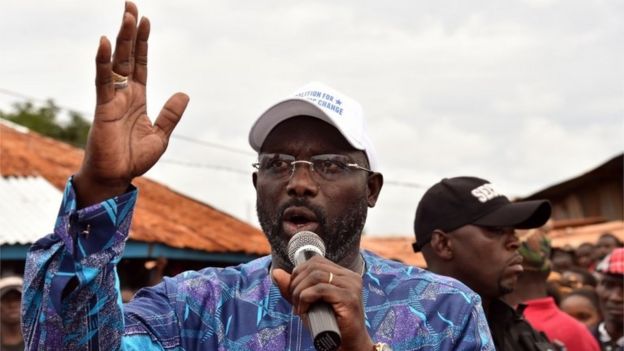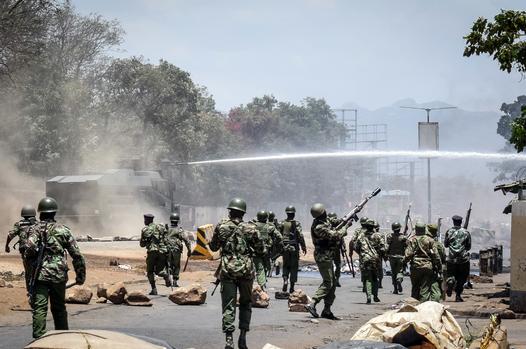Liberia votes to choose Ellen Johnson Sirleaf successor
Liberians have been voting to choose a successor to Africa's first elected female president and Nobel Peace laureate Ellen Johnson Sirleaf.
Ex-football star George Weah and Vice-President Joseph Boakai are the main contenders in the race to succeed her.
Liberia, founded by freed US slaves in the 19th Century, has not had a smooth transfer of power in 73 years.
Ms Sirleaf urged people to vote peacefully in a nation still recovering from a 14-year civil war.
"Your vote is about you and your family - not party, ethnicity," she said in an address to to the nation.
A total of 20 presidential candidates are running to succeed Ms Sirleaf.
They include Alex Cummings, a former Coca-Cola executive, and MacDella Cooper, a former model and ex-girlfriend of Mr Weah.
Ms Sirleaf, 78, is stepping down at the end of her two terms.
When will we get results?
The head of the electoral commission, Jerome Kokoya, told the BBC's Newsday programme that counting of votes would begin as soon as polls close at 18:00 GMT, and that he expected early results to be announced by 23:00 GMT.
 Image copyrightAFPImage captionGeorge Weah is hoping to be third time lucky in his presidential bid
Image copyrightAFPImage captionGeorge Weah is hoping to be third time lucky in his presidential bid
Provisional results could come as soon as Wednesday but might take up to two weeks due to the poor state of the country's infrastructure.
To avoid a run-off, the winner of the presidential race must get 50% plus one vote.
With so many candidates running, most analysts expect there to be a second round.
Is Liberia peaceful now?
Ms Sirleaf took office in 2006, after her predecessor, Charles Taylor, was forced out of office by rebels in 2003, ending the long civil war.
Taylor is currently serving a 50-year prison sentence in the UK for war crimes related to the conflict in neighbouring Sierra Leone.
Mr Weah, 51, has chosen Taylor's ex-wife Jewel Howard Taylor as his running mate.
This is the former footballer of the year's third attempt to become president.
Ms Sirleaf has failed to campaign for Mr Boakai, fuelling speculation that the two have fallen out.
Read more




